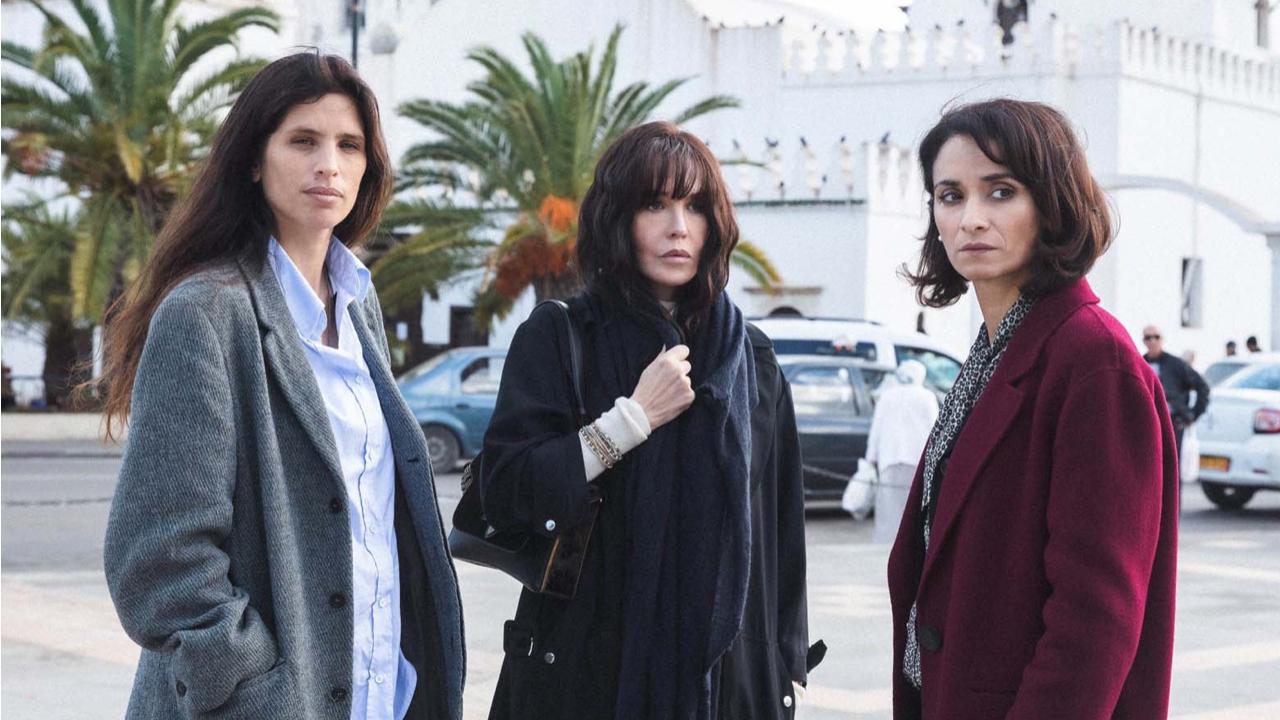For her second feature film after Insha'Allah dimanche (2001), director and politician Yamina Benguigui signs a powerful drama, between family tragedy and historical memory. At the center of the plot, the upset destiny of 3 sisters brought to reconcile with their past. The multiplicity of mise en abyme, flashbacks and improvisations still ends up doing the story a disservice, until it loses the spectator.
A painful cathartic quest
For nearly 30 years, Zohra, Djamila and Nohra have not heard from their little brother Reda, kidnapped by their father in Algeria after their parents divorced. In a context where the taboo on family history reigns, many questions remained unanswered, especially for the youngest of the sisters, played by Maïwenn. One day, their mother receives a call informing her that their father has had a stroke. At his request, the 3 sisters leave for Algeria to find their father with one objective: to finally see their little brother. Quickly, the wounds of a tormented past resurface, reviving the tensions already present within the family. Each has a very different relationship with her past: when the youngest Djamila (Rachida Brakni) shows her desire to detach herself from it, the youngest Nohra continues to suffer. But the conflicts intensify when Zohra (Isabelle Adjani), a director, decides to write a play about this family history, in which her own daughter plays. Misunderstandings and resentments mingle, fracturing this family a little more, until this trip to Algeria.
When past and present intertwine
The family drama at the center of the story goes back to the childhood of the 3 sisters, and is staged through many flashbacks. The spectator then discovers this story through the sequence of present events: indirectly, all seem to echo this painful past, shared between two countries, two identities. For the director, Sisters is "a film about France and Algeria, Algeria and France, it's a film about us".  Yamina Benguigui manages, through the use of numerous narrative devices, to deal with issues such as the need to emancipate oneself from male tutelage, to rebuild oneself after having lost everything or permanent violence, without ever falling into pathos. If these torments belong to a bygone era for siblings, they seem omnipresent in their minds, as if they had never managed to turn the page.
Yamina Benguigui manages, through the use of numerous narrative devices, to deal with issues such as the need to emancipate oneself from male tutelage, to rebuild oneself after having lost everything or permanent violence, without ever falling into pathos. If these torments belong to a bygone era for siblings, they seem omnipresent in their minds, as if they had never managed to turn the page.
Several confusions leaving many questions unanswered
If the main objective seems clear, that of understanding one's past in order to finally get rid of it, the means to achieve it are however more vague. The mise en abyme carried out, especially when Zohra had the actors of his autobiographical play rehearse, are particularly disjointed. These scenes made in addition to the flashbacks do not bring anything more to the understanding of past facts. As for the main question of this film, no explanation is clearly provided, leaving the viewer hungry. Being exposed but too rarely explained, secondary questions are also only partially satisfied. Despite some inconsistencies, Sisters deals brilliantly with a sensitive subject, managing to move us and make us think. This is a family history that can echo thousands of others, at a time when only paternal authority was recognized by law in Algeria.






































